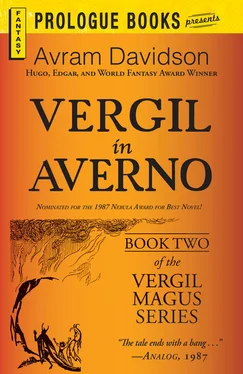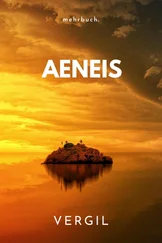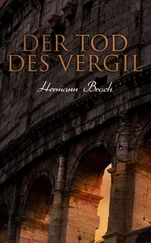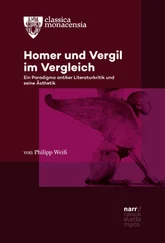Avram Davidson - Vergil in Averno
Здесь есть возможность читать онлайн «Avram Davidson - Vergil in Averno» весь текст электронной книги совершенно бесплатно (целиком полную версию без сокращений). В некоторых случаях можно слушать аудио, скачать через торрент в формате fb2 и присутствует краткое содержание. Жанр: Фэнтези, на английском языке. Описание произведения, (предисловие) а так же отзывы посетителей доступны на портале библиотеки ЛибКат.
- Название:Vergil in Averno
- Автор:
- Жанр:
- Год:неизвестен
- ISBN:нет данных
- Рейтинг книги:3 / 5. Голосов: 1
-
Избранное:Добавить в избранное
- Отзывы:
-
Ваша оценка:
- 60
- 1
- 2
- 3
- 4
- 5
Vergil in Averno: краткое содержание, описание и аннотация
Предлагаем к чтению аннотацию, описание, краткое содержание или предисловие (зависит от того, что написал сам автор книги «Vergil in Averno»). Если вы не нашли необходимую информацию о книге — напишите в комментариях, мы постараемся отыскать её.
Vergil in Averno — читать онлайн бесплатно полную книгу (весь текст) целиком
Ниже представлен текст книги, разбитый по страницам. Система сохранения места последней прочитанной страницы, позволяет с удобством читать онлайн бесплатно книгу «Vergil in Averno», без необходимости каждый раз заново искать на чём Вы остановились. Поставьте закладку, и сможете в любой момент перейти на страницу, на которой закончили чтение.
Интервал:
Закладка:
“It is done!” said Calimicho. He did not address Thrax. To the other students he said It is done . He flung up an arm and made an odd gesture, flinging up and forward, outward, the fingers that had been clenched. The light bedimmed. “The fee is paid. The course is finished. Go, go. Do not tarry: go.”
Thus it was. It was (thought Vergil) the entire cost and charge of six-and-sixty students — teaching and materials and lodging, food, and all, for more than twelve months and several: paid, paid in full with one single captive shadow!
And still Thrax groveled and still he wept and begged. “Basil. Turan. Magus. Rex. . my shadow. . shadow. . shadow …” He beat his head upon the floor and flung his head from side to side; his blood and snot and slaver sprayed the other students, all.
Calimicho gave one faint grin. Then he yawned. Then there stepped forward another student, a Northish one, who had early boasted (once) that his father was an earl. “Warlock,” said he, “this is not just. It was not Thrax who ran up last. It was” — his glance met Vergil’s, eyes to eyes, the Northishman’s mouth closed, opened — ”another,” said he.
Calimicho at leisure finished his yawn. Then he said, and, ah! how matter-of-factly, “It’s not a matter of who runs first or who runs last. It’s merely a matter of who gets caught.” He teetered a bit on his toes. Very quietly he said, “Begone. All.”
As Vergil passed, in his turn, down along the long, long corridors, he thought much of Thrax, and, less, of Thrax’s shadow. Never more might Thrax dare venture out on any sunlit day, save at noon, when no man casts a shadow: that therefore fearsome, fearful hour of terror sacred to Great Pan. (As for those who said, “Great Pan is dead,” had they never witnessed panic?) Thrax must henceforth even fear a moonlit night, and an even moonless one if lamps and torches might betray him. Thrax might indeed skulk, hide, dart swiftly and in pain from one dark place to another, sidling along dim walls and into dimmer corners. He might. He might try. To what avail? The man without a shadow was like a man with leprosy, save he needed neither cloak nor bell. No.
There was but one thing (Vergil realized) that Thrax could really do. He could stop on at the Second Secret School, and do the bidding of its principals. In all things. In all He might there and thus at least hope someday to get his shadow back. Or to get, perhaps. . what dread perhaps! . . another’s. And as to what might perhaps be done with Thrax’s shadow -
And Thrax’s blood and snot and slaver not yet dry -
At this point in Vergil’s thoughts he found that he had reached the beadle’s lodge. There was a vat of water, hot, and a towel. The beadle gazed at him, gazed away, as bored as he had seen him ne’er before and ne’er would see him more; and cared full not. Said the beadle, “Wash.”
Tact was wasted in Averno.
With a sweep of his arm Vergil dashed clear of everything the table nearest to him. There was more than one grunt of “uh!” But not one single one of “nuh!” And the Magnate Borsa gave another one of his enormous eructations, but as no words followed, it indicated, probably, slight surprise rather than even slight irritation. Vergil next appropriated from an adjacent table a bottle, one of the few glass vessels in the room; long-necked, round-bellied, new enough to be not even slightly iridescent; and he set it down so that a beam of sunlight passed through it, to be reflected, in refraction, on the opposite wall: a small circle. Not enough. Not by far enough.
Beams of sunlight were not so abundant there in crag-girt Averno as elsewhere on and near the Parthenopean Coast; Vergil, with an odd, quick gesture, gathered together what there were of them. The rest of the room grew darker. (“Uh!. . Uh!. . Uh!”) Into the glass vessel he poured water. . more. . a little bit more. . he wished it could have been from some special spring but there was not time for any of that. “Hold up the map marked Alpha,” he said, and snapped his fingers. It was not, perhaps, so very remarkable that the slave could read the leading letter of the Greek characters; what was rather remarkable was that he held the map up, not next to his body, that is, not in front of it, as he could hardly have been blamed for doing: he held it up, but away, to his right side, one arm quite above it and the other quite beneath it. This man knows what I mean to do! thought Vergil. But he had little time for the thought.
The small, dim, irregular circle of light on the wall now became larger, brighter, more regular, and rectangular. This produced from the magnates merely a few listless grunts. . from one, a quite audible yawn.
Vergil’s hand went to his pouch, came out with something that glittered and glimmered. It had come from a long way off, where, as sang Mimnermus,
There dwells AEtes in the farthest
east Upon the banks of Ocean Stream
here the rays of the sun are stored
In a golden chamber
In that far-distant land whence the
Sun doth rise …
This he thrust into the neck of the glass bottle. It did not fit; he clasped his hands roundabout, brought his lips close, murmured a moment, then turned the container on its side; a tendency to roll he quickly checked by sliding slices of cabbage partly underneath it to right and left. Then, there on the wall (fortunately it was a wall that contained no painting, though evidently preparations for one had once begun, for there was a whitened area surrounded by a border of Attic fret) — there, on the wall, contained within the border, there appeared, quite bright, and quite distinct, something that produced from the audience not a single, single, sound, not even “uh!” For a long moment Vergil thought that they were overpowered by what they saw. In another instant he realized that they had no notion at all of what they were seeing, for they had never seen anything of its sort before, not in any form at all. Most people, for that matter, had not.
“This,” he said, speaking somewhat slowly, “is what is called a map ….” A grunt or two, or three. Then again silence.
“This is what Averno might look like from one of the hilltops, if …” His voice trailed off; from the audience had come a “ nuh!” part-puzzled, part emphatic. The might had made no impression; in truth, what was displayed on the wall, the light magnified, reflected, refracted, expanded and projected along the long neck of the glass bottle and its stopper and passed through the transparent charts onto the whitened wall-space, was not “what Averno might look like from one of the hilltops.” Not without the automatic exercise of an imagination already enriched by a knowledge of, and experience with, maps or charts. Absorbed in the tasks of, first, preparing the diagrams, and, secondly, now, illuminating them upon the wall surface, Vergil had neglected, had forgotten, that neither such knowledge nor such experience was common enough to be taken for granted. Should he now try to explain? Begin to try to explain?
Almost without considering, he said, “Hippocrates, who reminds us that waters, airs, and places have their special powers, also reminds us, in his Aphorisms, that ‘Life is short, and art long; the crisis fleeting; experience perilous, and decision difficult. The physician must not only be prepared to do what is right himself, but also to make the patient, the attendants, and — ’ ”
But many mutters, much mumbling, and a general restiveness all informed him that quotations from learned sources, however apposite, were not what were now required. There was not time, and so he had perforce to use an easier way.
Читать дальшеИнтервал:
Закладка:
Похожие книги на «Vergil in Averno»
Представляем Вашему вниманию похожие книги на «Vergil in Averno» списком для выбора. Мы отобрали схожую по названию и смыслу литературу в надежде предоставить читателям больше вариантов отыскать новые, интересные, ещё непрочитанные произведения.
Обсуждение, отзывы о книге «Vergil in Averno» и просто собственные мнения читателей. Оставьте ваши комментарии, напишите, что Вы думаете о произведении, его смысле или главных героях. Укажите что конкретно понравилось, а что нет, и почему Вы так считаете.












